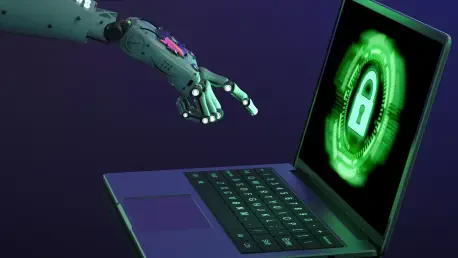In response to the urgent need for more efficient cybersecurity measures, Microsoft has taken transformative steps by integrating AI agents into its Security Copilot platform. This initiative is a significant milestone in cybersecurity automation, focusing on automating repetitive tasks to streamline operations while maintaining robust security governance. As organizations grapple with the need to secure their digital assets amidst a surge in cyber threats, Microsoft’s move signifies a pivotal moment in leveraging technology to safeguard digital environments. The rollout of 11 AI agents marks a new era for cybersecurity, where automation meets advanced threat detection and prevention mechanisms.
Microsoft’s AI-Centric Approach
AI Innovations in Cybersecurity
Microsoft’s deployment of 11 AI agents represents a substantial leap forward in streamlining high-volume tasks within cybersecurity. This strategic move is aimed at optimizing processes across various platforms and enhancing the overall security posture through mechanisms like alert triage, vulnerability remediation, and threat intelligence curation. These agents are crafted to address specific challenges inherent in cybersecurity management, transforming the landscape into a more efficient and responsive ecosystem. By alleviating routine and mundane tasks, AI agents ensure that cybersecurity teams can redirect their focus toward higher-tier strategic initiatives. Such innovations underscore the value of AI in enriching security measures, thereby boosting the efficacy of digital defenses.
Integration with Security Infrastructure
The integration of these AI agents into Microsoft’s security infrastructure is a testament to their comprehensive approach to cybersecurity. Agents like the Phishing Triage Agent within Microsoft Defender expedite the identification of genuine cyber threats, filtering out false alarms and ensuring efficient management of phishing alerts. Simultaneously, the Alert Triage Agents embedded in Microsoft Purview test the prioritization of critical incidents related to data loss prevention and insider risk alerts. This strategic embedding enhances threat detection capabilities, informed by administrative feedback, and fosters a safer digital environment. Microsoft’s deep integration approach with its security infrastructure aligns with its commitment to maintaining a secure and resilient digital framework and reflects the industry’s move toward AI-powered cybersecurity solutions.
Specific AI Agents and Their Functions
Enhancing Access and Vulnerability Management
Within Microsoft’s suite of cybersecurity solutions, the Conditional Access Optimization Agent in Microsoft Entra adopts a proactive stance in security management, vigilantly monitoring for new users or applications not covered by existing policies. By recommending updates to close potential security gaps, this agent plays a pivotal role in fortifying access control measures, thereby ensuring that organizations can preemptively address evolving threats. In parallel, the Vulnerability Remediation Agent within Microsoft Intune prioritizes and resolves configuration issues. This approach expedites the performance of necessary Windows patches after obtaining administrative approval, swiftly identifying vulnerabilities to protect organizational assets effectively. The deployment of these agents signifies a paradigm shift toward proactive security measures, where real-time adaptation is crucial to maintaining a robust security posture.
Broader Security Management Roles
On a broader scale, the Threat Intelligence Briefing Agent embedded within Microsoft’s Security Copilot platform serves as a vital tool in curating and disseminating essential threat intelligence tailored to an organization’s unique profile. By supplying timely and relevant information about emerging threats, this agent empowers cybersecurity teams to make informed decisions, aiding in the rapid identification of potential vulnerabilities and optimizing security strategies. The focus on threat intelligence reflects the growing recognition of the need for targeted information in bolstering cybersecurity defenses. Microsoft’s comprehensive approach ensures that AI agents are purpose-built for the dynamic landscape of cybersecurity, learning from feedback, adapting to diverse workflows, and operating securely, all while adhering to the principles outlined in Microsoft’s Zero Trust framework.
External Collaborations and Industry Impact
Partnership-Driven Solutions
Microsoft’s innovation extends beyond internal AI development, highlighting the potential of external collaborations to amplify the impact of AI technologies within the cybersecurity domain. Collaborations with industry leaders such as OneTrust and Aviatrix have resulted in advanced solutions like the Privacy Breach Response Agent, further extending Microsoft’s cybersecurity capabilities. These partnerships demonstrate a strategic approach to leveraging specialized expertise from trusted vendors, fostering an ecosystem where AI can thrive and evolve. By collaborating with external partners, Microsoft enhances its ability to deliver comprehensive cybersecurity solutions that address complex challenges faced by organizations worldwide. This model of partnership-driven innovation showcases the broader industry impact of AI initiatives, presenting new opportunities for growth and efficiency in cybersecurity.
Adoption and Workforce Dynamics
In response to the pressing demand for more effective cybersecurity solutions, Microsoft has embarked on a transformative journey by incorporating AI agents into its Security Copilot platform. This innovative strategy marks a significant advancement in cybersecurity automation, targeting the automation of routine tasks to enhance operational efficiency while ensuring robust security management. As organizations increasingly confront the challenge of protecting their digital assets amid a rise in cyber threats, Microsoft’s initiative marks a crucial turning point in utilizing technology to fortify digital spaces. Introducing 11 AI agents heralds a new era in cybersecurity, where automation intertwines with sophisticated threat detection and mitigation systems. This technological evolution underscores the importance of adapting to dynamic digital landscapes, aiming to preemptively address vulnerabilities and enhance overall security resilience, all while optimizing resource allocation and empowering security teams to focus on more strategic objectives.









